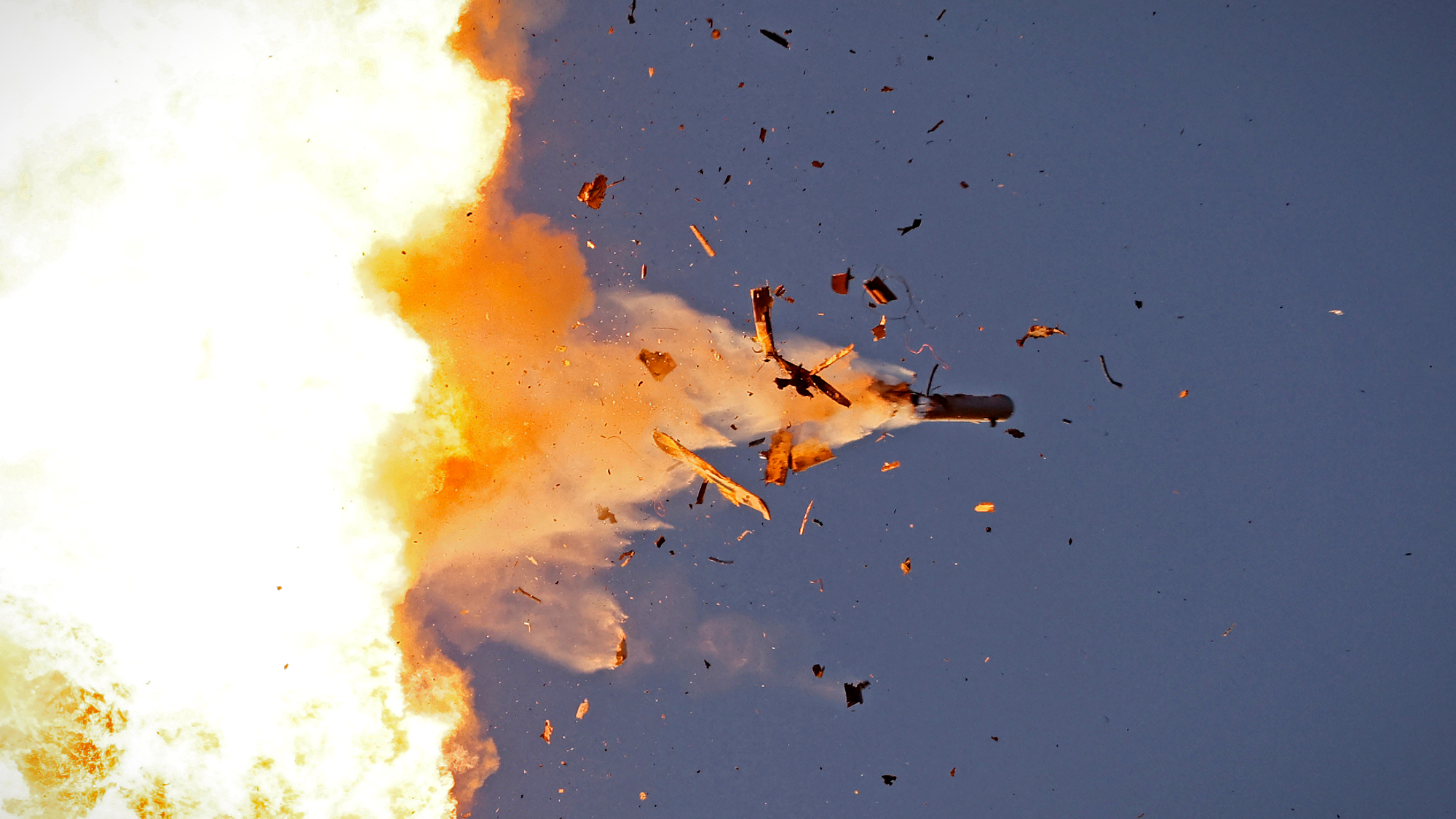Israel, Hezbollah trade rocket fire, avert war
The cross-border skirmish stopped short of all-out war, though Hezbollah said it will only halt attacks following a cease-fire in Gaza


A free daily email with the biggest news stories of the day – and the best features from TheWeek.com
You are now subscribed
Your newsletter sign-up was successful
What happened
Israel and Hezbollah exchanged their heaviest fire in years yesterday as Israeli fighter jets struck thousands of missile launchers in southern Lebanon and Hezbollah sent hundreds of rockets and drones into Israel. The intense cross-border skirmish was a "dramatic but contained escalation that stopped short of all-out war," The Washington Post said.
Who said what
Hezbollah's attack was a "preliminary response" to Israel's July 30 assassination of top commander Fuad Shukr, Hezbollah leader Hassan Nasrallah said Sunday in a televised address. The group could strike Israel again if it determines the damage "was not satisfactory," but "for now we consider the response over." Israeli Prime Minister Benjamin Netanyahu said the preemptive airstrikes were "not the final word," though an Israeli military spokesperson said almost all Hezbollah rockets and drones were shot down and the attack did "very little damage."
Three Hezbollah-aligned fighters were killed in Lebanon during Israel's attack and one Israeli Navy officer died. But the "heavy firepower and lack of civilian casualties might allow both sides to claim a sort of victory and step back" from a "long-feared war," The Associated Press said. Hezbollah wants "to say that we've registered a response," Mohanad Hage Ali, a Beirut-based fellow at the Carnegie Middle East Center, said to The New York Times, "and now move on from this phase of anticipation of a wider escalation."
What next?
Hezbollah "has said it will halt its attacks along the border if there is a cease-fire in Gaza," the AP said. But Israel and Hamas left another round of Gaza peace talks in Cairo yesterday with no agreement.
The Week
Escape your echo chamber. Get the facts behind the news, plus analysis from multiple perspectives.

Sign up for The Week's Free Newsletters
From our morning news briefing to a weekly Good News Newsletter, get the best of The Week delivered directly to your inbox.
From our morning news briefing to a weekly Good News Newsletter, get the best of The Week delivered directly to your inbox.
A free daily email with the biggest news stories of the day – and the best features from TheWeek.com
Peter has worked as a news and culture writer and editor at The Week since the site's launch in 2008. He covers politics, world affairs, religion and cultural currents. His journalism career began as a copy editor at a financial newswire and has included editorial positions at The New York Times Magazine, Facts on File, and Oregon State University.
-
 6 exquisite homes with vast acreage
6 exquisite homes with vast acreageFeature Featuring an off-the-grid contemporary home in New Mexico and lakefront farmhouse in Massachusetts
-
 Film reviews: ‘Wuthering Heights,’ ‘Good Luck, Have Fun, Don’t Die,’ and ‘Sirat’
Film reviews: ‘Wuthering Heights,’ ‘Good Luck, Have Fun, Don’t Die,’ and ‘Sirat’Feature An inconvenient love torments a would-be couple, a gonzo time traveler seeks to save humanity from AI, and a father’s desperate search goes deeply sideways
-
 Political cartoons for February 16
Political cartoons for February 16Cartoons Monday’s political cartoons include President's Day, a valentine from the Epstein files, and more
-
 ‘Bad Bunny’s music feels inclusive and exclusive at the same time’
‘Bad Bunny’s music feels inclusive and exclusive at the same time’Instant Opinion Opinion, comment and editorials of the day
-
 Trump links funding to name on Penn Station
Trump links funding to name on Penn StationSpeed Read Trump “can restart the funding with a snap of his fingers,” a Schumer insider said
-
 Trump reclassifies 50,000 federal jobs to ease firings
Trump reclassifies 50,000 federal jobs to ease firingsSpeed Read The rule strips longstanding job protections from federal workers
-
 Supreme Court upholds California gerrymander
Supreme Court upholds California gerrymanderSpeed Read The emergency docket order had no dissents from the court
-
 700 ICE agents exit Twin Cities amid legal chaos
700 ICE agents exit Twin Cities amid legal chaosSpeed Read More than 2,000 agents remain in the region
-
 Is the Gaza peace plan destined to fail?
Is the Gaza peace plan destined to fail?Today’s Big Question Since the ceasefire agreement in October, the situation in Gaza is still ‘precarious’, with the path to peace facing ‘many obstacles’
-
 Trump demands $1B from Harvard, deepening feud
Trump demands $1B from Harvard, deepening feudSpeed Read Trump has continually gone after the university during his second term
-
 House ends brief shutdown, tees up ICE showdown
House ends brief shutdown, tees up ICE showdownSpeed Read Numerous Democrats joined most Republicans in voting yes
